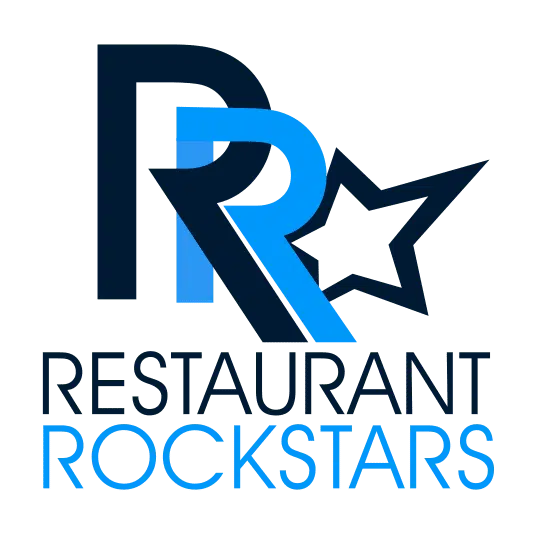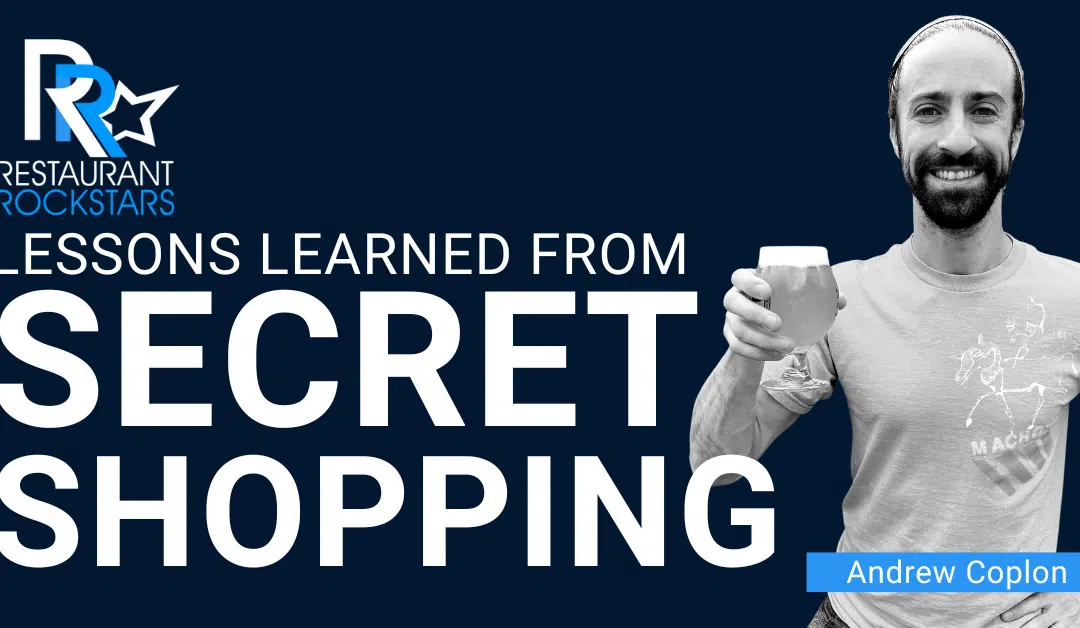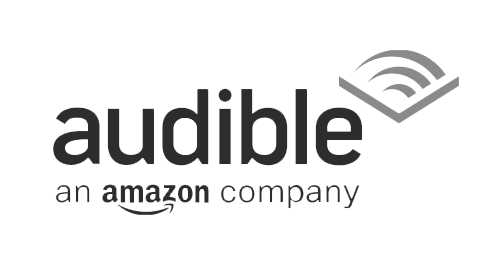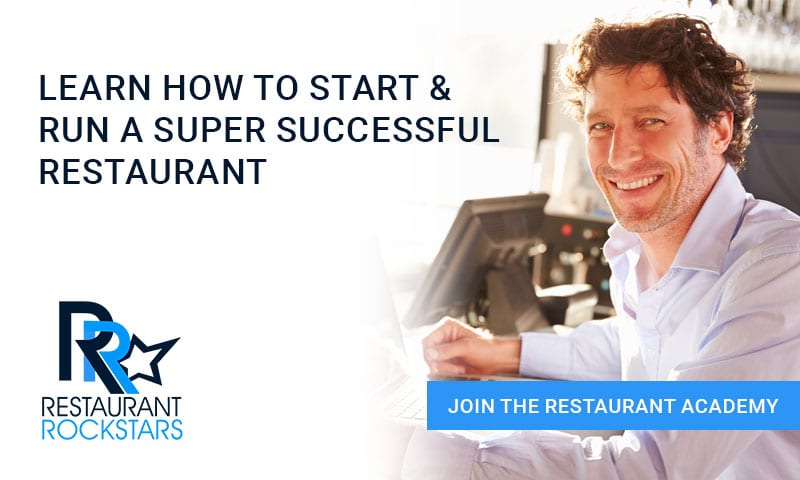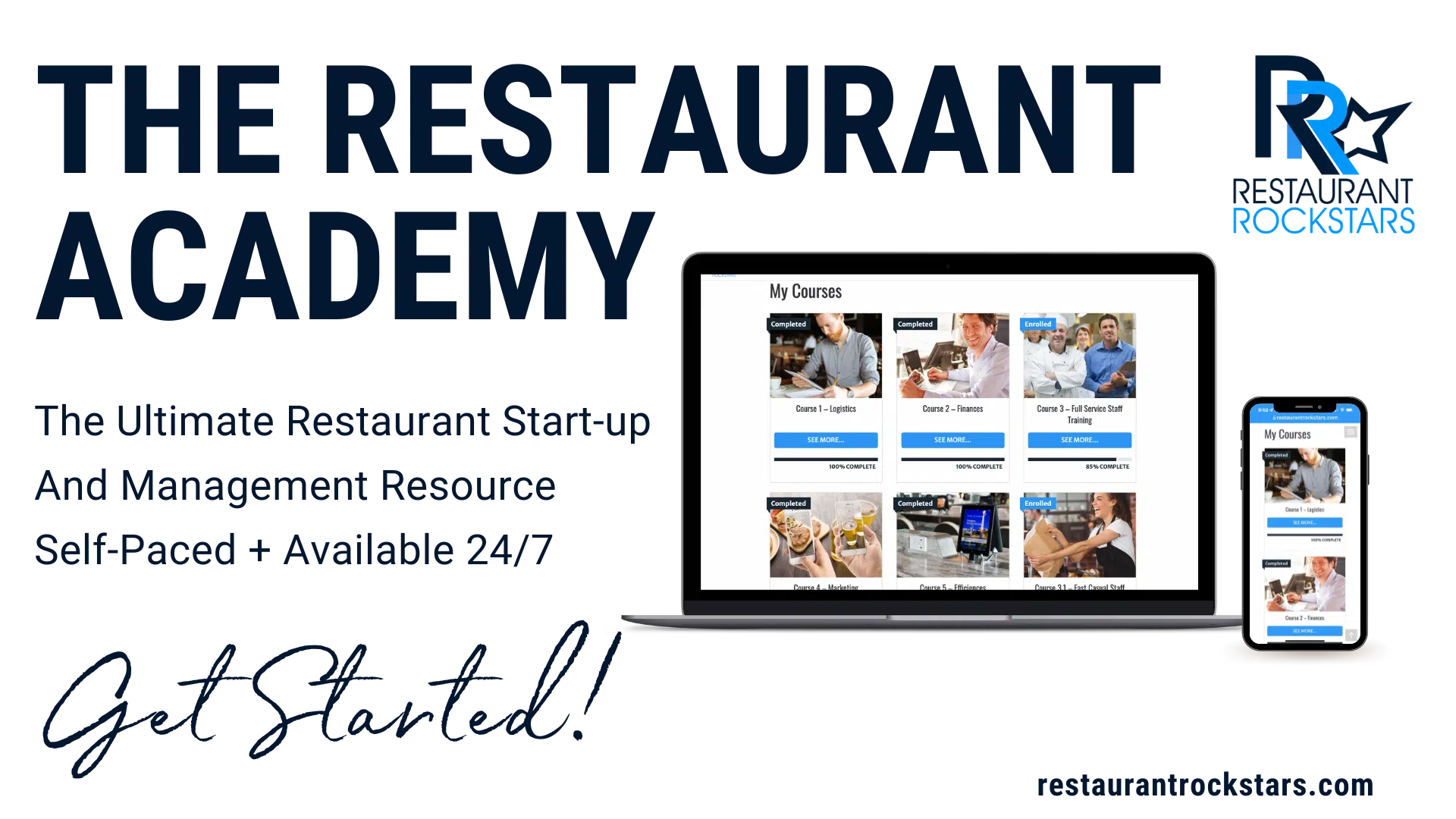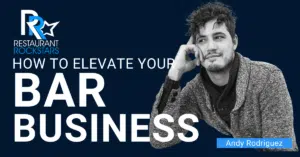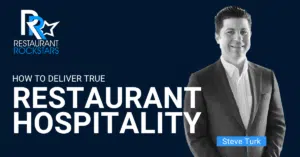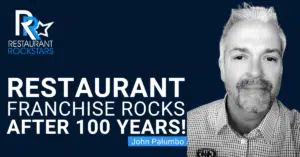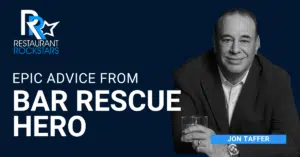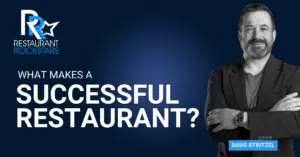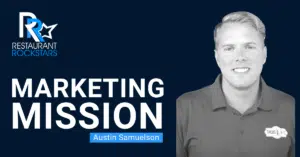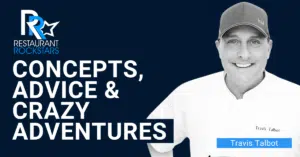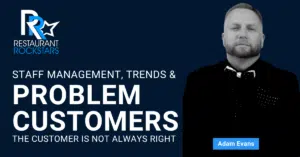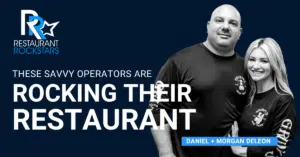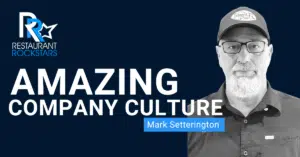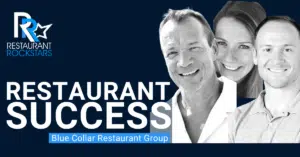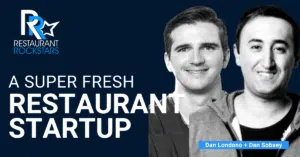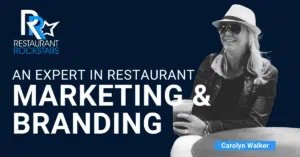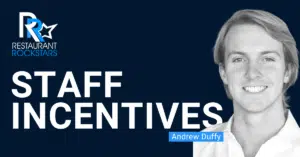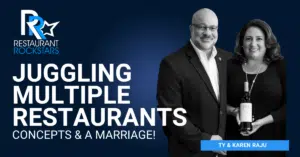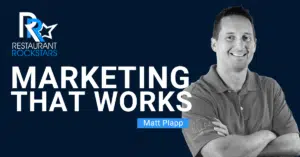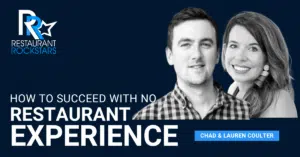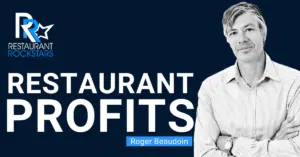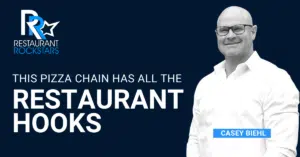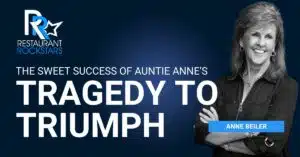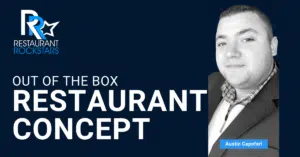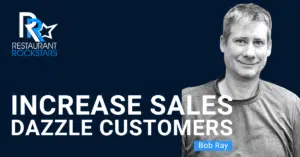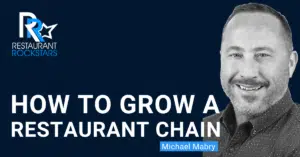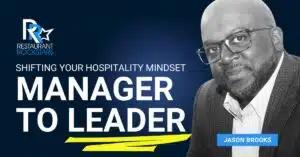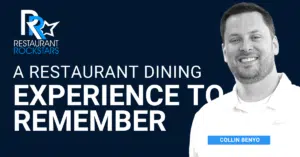Restaurant Rockstars Episode 332
Lessons Learned from Secret Shopping Breweries
LISTEN HERE OR ON YOUR FAVORITE PODCAST PLAYER
This country has gone crazy about breweries, and a strong beer program is highly profitable for every restaurant!
Whether you love and serve beer or not, it’s important to put yourself in your guest’s shoes to find out what they experience in your operation.
We’ve all heard of secret shoppers who come in and evaluate a restaurant’s ambiance, service and food and drink quality, but have you heard of “Secret Hopper”?
In this week’s episode of the Restaurant Rockstars Podcast, I’m speaking with Andrew Coplon, the founder of secret shopping for breweries. Secret Hopper hires beer crazy folks across the country to go into breweries and restaurants serving craft beer to help them optimize their operations, elevate guest service, and increase profits.
Listen as Andrew shares:
- His evolution from home brewer to hospitality founder
- How to succeed even when you lack basic business skills and experience.
- His passion for true hospitality
- What makes for great guest service for restaurants and breweries
- The importance of engagement and education for all customer facing industries
- How “Secret Hopper” works and what “Hoppers” do for your business.
And Andrew’s best advice to beer lovers who have always wanted to start their own brewery!
Listen to this episode and then ROCK Your Restaurant!
Connect with our guest:
https://www.facebook.com/SecretHopper/
https://www.youtube.com/@secrethopper
You have to know how to run a business, you know, a little bit, you know, influenced by the challenges we faced the past few years. You know, if you’re not knowing how to run a business, constantly adapt and innovate, you’re gonna get left behind. There are breweries that have been around, you know, over 10-20 years that aren’t keeping up with the times. And because of that, they’re experiencing challenges. So you got to have a business acumen if you don’t have it yourself. And so many owners, you know, they were homebrewers, they were brewers, they weren’t business people. You got to surround yourself with people who can provide you those skills, whether it’s finance, accounting, management, whatever it may be those marketing skills you need to really get out there. You gotta have a great team.
Hey, and welcome back to the podcast. You know, the world has gone beer crazy, especially in this country. You know, craft breweries continue to spring up and everyone seems to love beer. Well, my guest this week is Andrew Coplan, and he is the founder of a company called Secret Hopper. Now we all know what secret shoppers are. Well, secret hopper is a company that goes into breweries and analyzes their food and their ambiance and their experience and their guests service and helps them uplevel the operation, make them more profitable and make them more appealing to guests. It’s a very interesting concept that you’re not going to want to miss. So stay tuned. Thanks also to the sponsors of this week’s episode Whirks, The Birthday Club and The Restaurant Rockstars Academy. Now, on with the episode,
you’re tuned in to the restaurant rockstars podcast powerful ideas to rock your restaurant. Here’s your host Roger Beaudoin, when
people go to restaurants for lots of reasons for fun celebration for family for lifestyle. What the customer doesn’t know is the 1000s of details it takes to run a great restaurant. This is a high risk high failed business. It’s hard to find great staff. costs are rising and profits are disappearing. It’s a treacherous road and SMART operators need a professional guide. I’m Roger. I’ve started many highly successful high profit restaurants that I’ve now sold for millions of dollars. I’m passionate about helping other owners and managers not just succeed, but knock it out of the park. I created a game changing system, and it’s filled with everything I’ve learned in over 20 years running super profitable, super fun restaurants, everything from creating high profit menu items and cost controls to staff training where your teams serve and sell to marketing hooks, money maximizing tips and efficiencies across your operation. What does this mean to you more money to invest in your restaurant to hire a management team time freedom and peace of mind. You don’t just want to run a restaurant, you want to dominate your competition and create a lasting legacy. Join the academy and I’ll show you how it’s done.
restaurant owners and managers Listen, it’s not too late to claim your employer retention credit. But you have to act soon. If you haven’t heard of this, your business can receive money back from the IRS money have already paid in payroll taxes. Nothing you do today is more important. Now this is free and clear cash that your business is owed by the government, the ERC program is available if your operation had 500 employees or less, you had to shut down or partially suspend your business or you had at least a 20% decrease in business due to COVID 19. During any quarter of 2020 and the first three quarters of 2021. Now your business can get up to $7,000 per employee per quarter for 21 and up to $5,000 per employee in 2020. Now if you have just 10 employees today and meet the requirements, you can receive up to $260,000 back in a refundable tax credit that you don’t have to pay back. Now the faster you apply, the quicker you get the money but you must do it soon. You can use the money for any purpose payroll cost of goods, business improvement or other expenses. Again, you don’t have to pay this money back now Whirks is a company that will do everything for you to get the money that you’re owed. Now I’m speaking from experience with Whirks my restaurant received big checks in all available quarters and works people and process made it easy. For a no obligation consultation. Click the link in the show notes to this episode and speak to them with no obligation. You pay nothing until they get you the cash app now.
Hey, welcome back everyone. This is the restaurant rockstars podcast and this episode is all about beer and breweries and this really cool company called Secret hopper. So Andy, welcome to the show.
Hey Roger. Really thanks again for this opportunity.
Do you mind if I call you Andy or do you like to go by Andrew?
I usually go by Andrew, you know, whatever you want for today, it’s fine,
Andrew, it is. All right. Welcome to show Andrew. Thanks for being here. So I usually start out with the backstory of my guests. So yours is very focused on beer, but it could have been hospitality if you’re working in restaurants before. Tell us about your career in Hawaii.
I’ve actually never worked in a restaurant Roger. But when I was just 15 years old, I started selling snow cones at a local baseball stadium. You know, I love baseball at the time and wanted to have a great summer job. So that year, I started working for the Norfolk tides here in Virginia where I’m at, and I was the guy walking up and down bleachers, selling snow cones, cotton candy, you name it to everyone out in the seat. So started working hard at a very young age. And I ended up running that company for nearly 20 years. And that company worked at stadiums and arenas, all across the country. So not typically, you know, restaurant style hospitality, but still interacting with guests, the focus is really on creating those memorable experiences. So I had the opportunity to travel nationwide working everything from baseball games, to monster truck shows and everything in between. But as part of that journey on all these adventures I went on, I was a beer fan, I was a homebrewer I love beer, and probably a lot like yourself, always was thinking of ideas. So I was happy running this company, because I enjoyed what I did, you know, I got to go to different events, meet new people every day with a different kind of excitement. But in the back of my brain, there was always ideas and my wife, Stacy, she was always used to me sending her messages or discussing these crazy ideas that I had. But I never really pulled the trigger on them. Because I was the one you know, running this company. It wasn’t my company, but I was making the bulk of the decisions. So I had a lot of control over it, which was a lot of fun. And I once again did enjoy it. But one day when my wife Stacy, she was working at an animal hospital, Roger and I sent her a text I said, Hey, Stacy, I’ve got this great idea for a business. And she was used to these ideas, like I said, so I said, we’re gonna start a mystery shopping company for breweries. And we’re going to call it secret hopper. And I don’t know if you have an iPhone or not Roger, but on an iPhone, when you see someone start to text, those dots appear, then they go away. thoughts appear, then they go away. So I’m wondering what she’s going to say that what she said back was, that’s stupid. So what do you do when someone challenges your idea? You buy the domain name, you start planning it out, and you go all in on it. And that was in 2017. And at that point in time, you know, there was only 5000 breweries and on your like air quotes, only 5000 breweries. So now we’ve gotten up to nearly 10,000. But our whole premise was, you have to do more than make really good beer. So that was quite a few years ago, and has been a great journey since.
Gosh, that’s quite a story. First of all, I would not say that your original beginnings were not hospitality, because they clearly were because hospitality, yeah, I’m interacting with guests, I’m having a good time. It’s like we’re selling the beer, we’re selling the snow cones. It’s like you got to travel, you got to go to different events and stuff. And you’re right in the thick of things. But you also said, I was a home brewer, and most home brewers that have any kind of business acumen or either big dreams think, oh, I want to start a brewery Did you never think about starting your own brewery is that still down the road, it may still happen?
Oh, my friends and I who are home brewing back then we absolutely had those dreams for starting a brewery. And you know, at that point of time, it might have been a better opportunity to do it when there’s a little bit less than the market. But we never pulled the trigger on that we still homebrew a little bit to this day. But we had a lot of fun going through the process. And honestly, I’m glad I didn’t go that route. Because I enjoy the role that I’m in now just interacting with so many great brewery owners from across the country,
you found the best of both worlds. Now, it’s so interesting, because Stacey said that’s a stupid idea. But you strike me as the kind of person that when someone gives you that kind of a challenge or response, you’re gonna prove them wrong. And obviously that has happened, what does she think about it now?
I mean, she’s my partner in crime and all this now. So I think she’s enjoyed it. And we have a three year old. So it’s allowed her a lot of flexibility working from home.
That’s terrific. Okay, so we know your love of beer came from and you do still do some home brewing. Let’s talk about the evolution of beer. And you know, there’s different styles, there’s different countries, there’s different flavors. And then there’s obviously the mass production breweries versus the craft brewers. And you know, everyone has a different style or influence. What kind of beers do you appreciate most and what influences your choices because I can walk into my local supermarket or any convenience store. And it’s all about the packaging, and now they’re in bigger cans, and they’re in four packs versus six packs. And it’s like, they have all these creative names. I wouldn’t know where to begin. And obviously they’re all different styles. You know, everyone’s heard of IPAs and English, pale ales, and all this other kind of stuff. And I’m not an aficionado, but what do you look for when you buy a beer? I mean, what do you look for now, has it changed much?
You know, interestingly enough, I find myself buying beers a little bit less off the shelves these days. I really try to support the local brewery whether it’s closest to my house So you’re closest to wherever I am out of town. And at one point in time, I really gravitated towards a lot of Belgian style beers. I like a good lager, too. But when I go to a brewery for the first time, I honestly want to know what they’re most proud of, it might not be the most popular item on the menu. But I really want to know what the brewer is proud of. Because so often, you know, they’re not necessarily brewing for their tastes, they’re going to brew what’s going to sell the most in their tap room or in the market. So you know, a lot of styles that are popular these days are your super hazy IPAs, and that might pay the bills or the sour bills might pay the bills. But I want to know what that Brewer truly enjoys making. And that’s what I want to try. And one thing I love when you go to a brewery is simply starting with a flight which is like a taster of beers. For beers, you’ll typically pick out ones that you think you know, you might enjoy love starting with that to get to the bottom of what I really want to have a pint of,
you know, I’m also seeing this is while the word evolution just keeps coming up, because the industry started out, you know, decades ago, craft brewing and all that kind of stuff. It’s gotten bigger. You mentioned there’s over 10,000 craft breweries in this country. Now it started out with, say, a tasting or a tap room. And people were, you know, putting out beer, and then they had to bring in food. And I’m gonna ask you about that in a minute. But now, the sophisticated ones are retailing their beer, in addition to having their brewery and you will see their beers in the local supermarkets and even regionally and expanding out, and it must be so competitive to do that. But you certainly need business skills and acumen to do that. So when you say you support the local brewery, are you seeing several of those like retailing their beer as well? Are they just really just focused on their craft in that brewery?
Yeah, that’s a really great question. You know, five years ago, when I was first having these conversations with Taproom owners, you know, there was still space on shelves for a lot of new brands to get out there. These days, that’s not the business plan of everybody who’s now opening a brewery, some of them just want to be the best brewery within, you know, five miles of the next brewery, they want to own that mile around their brewery, and they might not even have any plans for any distribution at all. So the only way you can get their beers actually is from taps in the tap room or maybe from a four pack that they’re selling in brewery. So I think you know, as the industry’s grown, business acumen has become extremely important, you really have to know who you are and what your goals are, if you’re trying to get out of the market, you got to be ready for big uphill climb to get on those shelves, like why is someone going to buy your beer, love everything else that’s been out there, almost 10,000 breweries, you know, obviously, you’re not gonna have 10,000 selections in your local supermarkets or total lines wherever you’re shopping. But there’s a lot of options to pick from. And that’s why, you know, a lot of breweries really focused on the taproom space where they can maximize those profits. And, you know, an interesting thing with regard to tap rooms at breweries find that that one tap rooms successful and they’re owning those miles around that tap room, we see a lot of breweries expand by opening second and third locations to go to other areas where they might not have a tap room to call their own.
So one other thing that is obviously very noticeable is breweries have a very highly profitable product that they create, they can charge very good money for something that costs them fairly little to produce in relation to food or other items. So profitability is clearly there, which allows some margin for error. But again, if you don’t have the business skills, and you just have a love for brewing, it’s like how do you put that together so that the places don’t fail? Have you seen? I mean, you work with a lot of different breweries now, but have you seen a lot of them? Or even several of them going into business without the proper business skills? And can you take them to the next level so that they don’t fail?
Yeah, that’s a really great question, Roger, because absolutely, you know, knowing how to run a business, you know, it sounds silly to say is important in any business, whether you’re talking beer restaurants, or any other industry, and a few years ago, people could go to market, you know, make an okay product, have an okay, time from experience and be pretty successful. That’s not the case anymore. There’s so many breweries out there, you have to make great beer, that is not a question. If you are not making a fantastic product, you’re not going to survive. You have to know how to run a business, you know, a little bit, you know, influenced by the challenges we faced the past few years. You know, if you’re not knowing how to run a business, constantly adapt and innovate, you’re gonna get left behind. There are breweries that have been around, you know, over 1020 years that aren’t keeping up with the times and because of that, they’re experiencing challenges. So you got to have a business acumen. And if you don’t have it yourself, and so many owners, you know, they were homebrewers, they were brewers, they weren’t business people. You got to surround yourself with people who can provide you those skills, whether it’s finance, accounting, management, whatever it may be those marketing skills, you need to really get out there. You gotta have a great team. And that team also comes down to your taproot because if you don’t have people in your taproom, who are successful advocates for your brand, they’re not going to get the message out there to the people who are coming to see you.
There are definitely a lot of passionate people that are totally into beer. And those are the best employees or team members to have, obviously, because people that understand beer that can make suggestions to guests that can really turn them on to different flavors, suggest a flight, maybe even curate a flight, like all this is a competitive advantage. But then again, you mentioned, you’ve got to have the right product. And what would be the key to creating something unique that stands apart from all the other breweries out there? It’s like, what’s the secret sauce of creating great beer?
Yeah, I mean, that’s a great question. I’m not going to tell any Brewer what recipes to make. But I will tell them, you know, ask the customers, what do the customers want? What does your point of sale data show is selling the most of what is that one off beer you try, that was a huge hit, that maybe you should consider brewing a little bit more, you know, what it really comes down to Roger is knowing who you are. No brewery wants to be a place where you can just have a good beer and a good time. That’s way too general, you know, you have to, in five words, be able to almost describe the message, you want someone else to tell their friends about your brewery, like what’s someone else’s pitch going to be to come to your Taproom. And that’s who you are. It can speak to your beer, it can speak to your experience. But really we all have short attention spans these days. And if I’m going to give you five words to describe a place, why is it going to give someone else the urgency to try that product to go visit that location?
What else makes a memorable brewing experience and maybe we talk about the food now because just in my own experience, and I know things have dramatically changed, but let’s just say 30 years ago, when craft brewing really started getting going, you know, it’s like, breweries had to have food just because it was you know, they had to, to round up the beer offerings, but the focus was really on the beer, not the food. It was pub style food, nothing very sophisticated. But it wasn’t very well done 30 years ago, and now, breweries, the best ones have sort of evolved into really fun restaurants that have equally good food and beer and providing a whole experience plus the service and the ambiance and all the things that make any restaurant successful, wouldn’t you say? Um, have things really forced the industry to focus more on food? Or are there some breweries that just survive without really having much for food, because the beer really still is the draw.
I agree 100%, with what you just said, Roger, and I actually have an image that I’ve created, I called the Venn diagram of Taproom experience, like three circles that coincide, center, and I’ve got an image that on the top part of it, you have to have quality beard, that’s the first circle. And you got to have that because if you don’t have that, as I mentioned, you’re not going to survive, then you also have to have the engaging staff, the staff is going to will be able to describe your beer, build connections with guests, and you’re talking about food now. And that really falls under the third circle of creating that memorable experience. You know, that’s everything from the lighting, the music, you know, the art on the walls, to the food, what’s going to contribute to the big picture. And these days, when people go out there often being a little bit more intentional where they’re going. On a personal level, I know I don’t get to go to as many breweries as I once did, especially with a three year old and we go out, we need to find a place that all three of us are going to be happy going. Well, I of course, want the quality beer, and I want the engaging staff to learn about it. But when I’m looking for that atmosphere that’s going to appeal to all of us, it often does need to have food because I know when I can go to a place that might offer pizza alongside and delicious lager and have a beautiful patio where my three year old can entertain himself won’t probably going to get to have that second beer first, just that first beer and in you has a lot of diverse options. And not just your hazy IPAs, your super dark styles, my wife can pick out what she likes from a pretty unique menu, we’re all going to have a better time because it’s going to appeal to more people. And I think that’s what we’re seeing these days a lot in the craft beer space, and not just appear hearing dealing towards you know, the white male who wants to have a great lager. They’re trying to appeal to everyone. Because if our market wants to grow, and we want craft beer to appeal to more people, you have to diversify your offerings and provide those experiences that are going to not only attract who you’re currently seeing as customers, but new people as well.
Are you seeing or do you in your service encourage breweries to somehow creatively pair their great beer with their foods that they’re curating sort of a menu, this beer goes great with that meal, or that dessert or whatever it is. Are you seeing that as a trend though? Is that really happening?
Oh, yeah, absolutely. And I also wear another hat, I run an organization called craft beer professionals. And we just hosted a webinar a couple weeks ago on how to pair cheese with your beer and your captain. We had a webinar on that next week, I’ve got one on how to pair chocolate with your beer. So you know, when you go to a tap room, it’s one thing to have a bag of chips, you know, that’s just satisfying your urge to have something to eat with your beer. But when you pull on the chocolate, you pull on the cheese, you pull on the whole menu that pairs with your beer. That’s an experience and that’s something that you can you know, brag to your friends you have the opportunity to do so I think anything you can do to elevate the level of a guest experience by you know, having food is great. Just simply offering chips or something like that something simple is going to get the guest probably drinking a little bit more. But when you can take it to the next level by creating out of these world Wow experiences where they’re not just going to have the beer, they’re not just going to have the food. But it’s going to be a journey to get to the final excitement point. That’s what you’re looking to do.
So certain regions of the country, obviously really have sort of pockets of craft breweries. So Portland, east and west coasts really come to mind. Portland, Oregon, Portland, Maine, Seattle has a big beer scene. Austin has a big beer scene. There are regions that are really beer centric, you might say, would you say in your experience that craft brewing is getting saturated? Or is there still room for new breweries to open up and succeed in the market? Where there’s over 10,000 breweries in the cut?
Yeah, fantastic question. I think it really comes down to the breweries knowing what they want to be, someone just can’t come out and just open a brewery and say they want to have distribution across the country, it’s probably not going to happen anymore, unless you have absolutely a lot of funding. But if you want to go into a small town that doesn’t have a brewery they call their own, there’s definitely opportunity, you can almost have that cheers, feel and be the neighborhood bar that happens. Just make their own beer. And, you know, if you come in with different expectations and know what you want to be, I definitely think there’s room for that. I mean, just think about how many restaurants are in the country. And I don’t even have the answer for that. But it’s way more than the breweries and you know, think of an area where you could come in, you know, have a really unique kitchen, but happen to make a little of your own beer on tap. You know, that’s just adding to the overall hospitality experience. We’re looking for
heavy ingredient prices risen with inflation, because cost of goods and food for restaurants has gone through the roof. And it’s been cost prohibitive labor is at an all time high people, you know, the labor crisis, people finding things. What’s happening in the beer industry in terms of, you know, costs of goods, hops, is it was there a hop shortage at one point, like what’s happening and in terms of those dynamics economically?
Yeah, unfortunately, beer isn’t immune to the challenges of supply chain and shortages. And over the past few years, you know, they’ve seen some rough barley crops that’s caused barley prices to increase they’ve seen aluminum shortages caused the cost of cans to raise are really hard to get. So beer is not immune. And in some taprooms, you might see slight price increases to coincide with this. So there are definitely struggles very similar to other industries with other ingredients that beer is facing as well.
All right, excellent. Let’s dive into secret hopper. First of all, I think the name is genius, right? It’s totally a play on secret shopper. But tell us what it is. Tell us how it works. And then once you answer that we’re gonna dive into you know, how you create memorable brewery experiences how you make them more profitable, because that’s really the crux of what you do. But first of all, just tell us about it. You said, when you found it, it and all that, but just tell us about it.
Yeah, I love it. There was only 5000 breweries. And my whole premise was you have to do more than just make great beer. But at that time, in 2017, most breweries weren’t focusing a lot on the business side, they didn’t invest maybe a quarter million dollars in their brew house, but you asked them to invest $250 in the tap room experience for both guests and staff. Now they didn’t have the budget to but we’ve seen a lot change over the past few years. And what we do, we sent mystery shoppers to visit tap rooms all across the country. And they’re gonna go in the tap room, they’re gonna order a flight, a beer sampling of beer, followed by a pint of beer, and they’re going to interact with the guests just like they would on any experience. They’re going to pay attention to little things. What’s the outside of the brewery properly maintain the staff member introduce himself that they offer recommendations? Did they offer a flight? Everything to the end of the experience? Were they did they get a sincere thank you upon leaving and one of my favorites? Were they encouraged to take beer to go home with them? That’s one of my favorite questions, we can probably dive into again. But you know it the goal was to find ways not just to maximize the experience for the guests, but also for the staff because think about it, Roger, you know, every time you go to a restaurant or brewery or winery, are you going to leave and say, oh, man, Andrew didn’t give me his name? No, you’ll probably never get upset on most cases about the staff member not offering their name. But what we have found is little touches like that. When you take the opportunity to get to know someone offer those personal details, the guest is going to feel better connected. And guess what, when you are able to connect with the guests on higher levels, they’re going to spend more So little things like offering your name won’t make a difference to most guests. Unknowing to that guest when a staff member does that the guest is going to have an overall better, more engaging experience and spend more money.
That absolutely resonates with me because one I’m really passionate about guest service but it’s always been a huge pet peeve of mine when staff are not trained to introduce themselves by name because it instantly creates a rapport and a relationship with that guest and if you deliver amazing service, chances are that person is going to come back and to ask for that person by name. And that’s something that so many restaurants don’t recognize or even train for And it’s such a simple thing. And I’m so glad you mentioned that. Yeah, it absolutely is vitally important. So yeah, keep going.
And when I talk about Taproom experiences, you know, you have those experiences where you get low engagement, you get that neutral engagement with the staff just going through the motions. But the ultimate goal is when you have that team member who’s sharing the story, making sure you have that perfect beer, checking back in a timely manner, and really getting to know you. Because when you have those experiences with high engagement, you’re not going to walk out of the brewery saying, that was the best IPA I had, you’re gonna walk out saying, Wow, Roger was amazing. And I can’t wait to come back to his tap room to see him again.
I absolutely agree with that. 150,000%. I love it so much for bringing it up. That is yeah, that’s that is the I mean, that’s the philosophy of hospitality right there. And obviously, the people that represent you that interact with the guests every single day, are making impressions. And they’re either positive or negative. And they have such an impact on the repeat guest. And you know, that lifetime value of a guest thing is just ever present, and should be in every operator’s mind, you know, you don’t want to constantly keep looking for new business, it should be all about building repeat business, and delivering memorable guest experiences, every every table every time every stool every time at the bar. So thanks for bringing that up. So you mentioned that you you find people, you recruit people around the country to literally go into, you know, these breweries and rate the experience. So there must be sort of a template for them to follow. And I know that I used to do this too, because being in the business, you kind of critique experiences, but I’ve been hired to be a secret shopper before. And I find it really awkward to not miss any details and be taking notes without being obvious that you’re there ranking a place. So how do you do it? Or how do your people do it without? You said they blend in, you know, with the guests? It’s like, so you’re just another guest, but yet somehow you got to keep all these 1000s of details and capture that? Back. So how does that work?
Well, for better or worse, isn’t everybody on their phones anyways?
Yeah, most of the time they are. Yeah, I mean, I used to take notes on my phone constantly. But sometimes the server would think, Oh, is that person like,
jokes aside, you know, brewery owners and Taproom managers, they’re very busy people. Often the owner is also the brewer, who’s also the janitor, who’s also the account. So they wear lots of different hats. And are, you know, I was a mystery shopper at restaurants back in the day as well. And, you know, when I would do some of those reports, would be 10 pages of hundreds of questions. And let me tell you one thing, Roger, brewery owners don’t have time for that. So what we have done is we’ve kind of summed it down to about 25 to 30 points that matter most to them. And that way, when they take the time to read these two or three pages, they can know that oh, my gosh, Andrew is not taking the time to engage with guests, or Roger is doing a fantastic job. So you know, let’s give them a bonus. And so that kind of makes it a little bit easier for the mystery shoppers to remember or take reef notes. We don’t want them spending time on their phones when they’re doing this. We want to make sure all the little details that we’re asking, you know, did Roger introduce himself? It’s a yes or no question. Little things like that. We do a lot of yes or no, did it happen? Did it not happen or time based questions. So we kind of can judge the level and the speed of service. We want to make it an easy and fun way for the shoppers to an experience brewery because I don’t know about you, but myself and a lot of brewery owners. When you go into the same place or same Taproom over and over again, it becomes a blur. So it’s really important to focus on the little things that make a big difference, but also not make it overwhelming for the mystery shoppers to complete, and also not overwhelming for the staff and the managers take these suggestions and see results from them.
Do you offer solutions to the glaring issues that get uncovered during this process? And well, before you answer that question, let’s talk about the steps. Let’s talk about someone going into a brewery and then getting an experience. Is it based on just one experience? Or say two experiences to give them the benefit of the doubt? Does that ever happen?
It does. So when we work with a brewery, we’ve first asked them are there certain times you want us to send in shoppers because some breweries know that that server on a Thursday might might have some problems and wasn’t outside feedback to just see what’s going on. Or they might say hey, keep it random and or just send them in wherever. So we’ll kind of get a pretty good sampling across different levels of busyness, different team members and taprooms. These days, you know, some might only have a couple bartenders and some might, you know, have a rotating staff of 50. So every brewery Taproom has different and unique goals. So we’ll send their shoppers in based on that. And when it comes down to sending the shoppers, we’re only going to send the same shopper once every three months because we don’t want them to interact with the same bartender and back to back of course weeks back to back month. We want to make sure that if we are sending the same person in, they are potentially going to interact with someone else go for a different time of the day or if they are going back into small staff. They’re going to ideally see improvements when they go back and that’s one of the things we love that When we go, we send the shopper and they might go and say, April, and they go back in July. And they message us following their visit. You know, they did the report, they got paid. And they message us and say, Andrew, you know, when I went in April, I left a comment that, you know, I thought this should be an improvement that they make. And when I went back this time, they were doing such a great job with it. So it really does help on the shopper level when they see the actual changes taking place as well.
I love that. Okay, so that takes us to the next question.
Hey, rockstars, let’s talk Restaurant Marketing. I started and ran five high volume restaurants. And I was obsessed with marketing, not the traditional kind. We try this and you try that and you hope for the best. That’s like dumping $100 bills out the window, but nobody’s coming in the door. I’m talking about marketing that’s trackable where you know exactly where the business is coming from, and most important that it delivers far more than every penny you spent. So here’s where my friend Dyson comes in. He’s a restaurant person, just like you owned his own concepts. Now he runs fan Connect. He’s got something called the birthday club that’s proven to drive new and repeat business in your door, because everybody has a birthday. He does it all for you to all the heavy lifting, all you have to do is focus on your guests and delivering true hospitality. Why not speak with Dyson yourself. He loves talking shop with operators, and there’s no obligation, but I’m pretty sure he can boost your business and put more butts in your seats. If I still own restaurants. It’s exactly what I do. Check it out at fanconnect.com/birthdayRockstar.
How are the results transmitted? Is it face to face by your representative? Or is it digitally transmitted to the, you know, to the brewery owner or manager? And then there’s some sort of a conversation afterwards that gets summarized? Like how does that process work? Is it always the same? Or is it different in every case? So
I wish I was having face to face meetings with brewery owners across the country? Wouldn’t that be nice, but no, we send them a digital report after each month, which kind of gives them a feedback, we typically send in for shoppers a month. So they have that report that samples, you know, the for visits data, they’re going to look at it as a scoring system attach. And most of the questions are, as I mentioned, yes or no or time based. So they can look at it and say, Well, my team needs to get a little bit better at encouraging beer to go or offering a second drink. So it’s very quick to know the actions needed. And one service we provide all the Brewers we work with, you know, I spend a lot of time on Zoom and calls throughout the day. So any of them if you want to bounce around any ideas, let’s hop on a call. So let’s figure out you know what we can do better together, because that makes our relationship even stronger. And more importantly, when I’m talking to brewery owners, say in Ohio or Virginia or California, one of them shares with me that can possibly pass along to the next person. So my goal is almost like the organizer. I’m the facilitator, I’m soaking in all this fantastic information. It’s my goal to simply share it with others who can provide value find value in it.
Do the secret Hoppers receive a complimentary experience?
They get paid for their visit, and who wouldn’t want to get paid to go visit a brewery that they’re probably going to visit anyways.
Okay, and then how to how do you make money? What’s the business model? Can you say?
Yeah, that’s great. So our shoppers on average, are paid about 20 to $45 per visit, depending on you know, what it’s going to require them order. And we just charge a little bit more to cover our expenses, a lot of more traditional mystery shopping companies, you know, they’re going to pay a business for two guests to go. And like if you went out to dinner, Roger, you’re probably going to bring a friend with you. We’re not going to pay necessarily for the friend to go. Because we have found that when we send our mystery shoppers to breweries, I’m going to bring a friend with me anyways, who’s going to spend money, so it’s gonna help contribute to the overall revenue of the brewery that day. And interestingly enough, we see that the average secret hop, when it only includes beer is going to generate $45 for a Taproom. And actually, at our lowest price point, that’s what a visit is going to cost. So it’s going to pay for itself. And we found that when we work with breweries who offer food as well, the average visit is going to generate 75 bucks. And in some situations, our cost per visit is going to be less than that. So not only is it going to essentially cover its costs, it’s going to provide the brewery data and the tools to be more successful.
I get how your your company and how secret hopper is creating more memorable experiences at these breweries. That’s crystal clear to me, what I’m not quite getting is how you make them more profitable.
Oh, this is a great one. So I’ll give you an example on this one. So this applies to restaurants, bars, anywhere you go and think about how many times you’ve been out to enjoy a meal or just in a drink and you finished your drink. It’s just sitting on your table and you are waiting to see someone come by and ask you say Hey Roger, Would you like another in taprooms? We see that when 45% of Taproom visits, the staff member is not encouraging a second drink. Think about that nearly half the time I’m in brewery taprooms. And I’m sure the data is very similar in a lot of other style hospitality restaurants and facilities, that the guest is not being asked nearly 50% of the time if they want another drink. But magically, when that server comes by and says, Hey, Roger, Would you like another beer, those tabs are on average, $6.50 Higher? Magic, right? So little tricks like that are ways you can increase a tab and the guest is going to try another one of your beers, they might like even more
Suggestive selling. And it’s not just about the beer, it’s about anything on the menu, and it all comes down to product knowledge and personality.
Oh, yeah, suggestive selling is what it’s all about, you know, whether you’re suggesting that second drink of food item beer to go is anything you can do to add it on. And you know, you got to do it by building authentic relationships. And that’s one thing that we’re seeing, you know, the more you can connect with the guests, the more that guest is going to spin. So really, it comes down to engagement. And that’s what a lot of our questionnaire truly monitors, it monitors how the staff member is interacting with the guests. Because when you go somewhere, and you’re not receiving that high level of service, you’re not going to spend that extra few dollars, you’re not going to tip them higher. But when you feel connected to the person serving you, you’re going to tip them a lot more, you’re going to spend more money, you’re not going to want to leave, and you’re going to be more likely to recommend and return to that place than other places that you visited.
So the beer industry is very tight knit. And it’s very cooperative. Also, it’s like it’s competitive, but it’s cooperative. It’s not unheard of that one brewery will help out another and some brew beer and white label it for others. And some Hey, I’m out of cans, can you give me 30,000? Can you know what I’m saying? It’s very, it’s very collaborative. And I think that’s one of the beautiful things about this business. It’s like it’s such a tight knit community. So my my question really is about is this a word of mouth thing is like is this is your business taking off? Because one brewery saying hey, this, you know, secret Hopper did this for me? Or do you actually have a marketing plan that you’re attracting new people, they have salespeople in the field that are getting secret shoppers in the door? Like how does that work?
So great questions. Well, we’ve found that by simply, you know, having the business model that pays shoppers to visit breweries, we’ve got a very large network of 1000s and 1000s of people across the country. So it hasn’t been hard to recruit shoppers who want to visit breweries, and we hope we have opportunities for all of them one day, with regard to breweries, you know, early on, we thought that brewery owners would tell other brewery owners about this model. But think about it. And it makes sense. If I own a brewery here and you own a brewery a block away, and you discover that part of your secret sauce is having these mystery shoppers from secret Hopper come in, you’re not going to tell the brewery around the corner. So while there is a lot of collaboration and cooperation in craft beer, nobody wants to be someone’s second favorite brewery. No one good. So the goal really is to make people want your place to be the number one spot that they want to go. Okay, we’ve done a lot of educational content over the past few years. And we found just by simply, you know, teaching people the strategies, they can apply in their tap rooms. And like I said, a lot of these concepts apply, no matter what type of business that you’re running, because it’s all about education and engagement, building relationships. By showing them the strategies, they’ll eventually want to see the data that we collect to help them maximize it and know what’s really going on in their business.
Am I correct in assuming that you’re building a really viable large company without having much overhead and you don’t have employees? And all these people are independent contractors and all that kind of stuff? And I mean, it’s beautiful thing, right?
No, it’s been a great business to get to be part of you know, it’s been really great for my wife, my family and I, we do have a small team that helps us behind the scenes, and they’re absolutely amazing. But it is very streamlined. We’re important. It’s more docile, we keep things very efficient and easy for everybody, whether that’s the shoppers experience to Briones experience to our team’s experience. We want it to be positive for everyone.
Was this sort of an overnight success? Did it take a bunch of lumps on the head are experiments that didn’t work to really get to the place you’re at now? Like, what would you say the original entrepreneurial journey was like for you?
Yeah. So like every business, you start with zero customers. So we started reaching out. And I’ll tell you now, that cold calling in the beer industry was not a good idea. I stopped pretty early on on that one. But, you know, when we had some breweries that were some of the top 50 largest in the country, say they wanted to try this out, we knew we were onto something, because five years ago, six years ago, there wasn’t a lot of talk about experience in beer. But as we’ve seen, it’s grown quite a bit. So we’ve seen a lot of traction as the industry becomes more business savvy. And we just simply see that as we continue to put out great content, and the industry is trying to find out who they are as a whole and everybody knowing you know, those five words they can describe, we see a lot more traction as we continue to grow and do that. But you know, it’s constantly a battle people a lot more knowing who we are by word of mouth these days. But you know, once again, they’re not telling the brewery around the corner, their secret, a secret Hopper,
right. And you’re and the people that work, you know, as the secret hoppers, it’s a pretty wide cross section of people and demographic, right? It’s just the common denominator is I like beer. I like going out to primaries, but it could be all ages, sexes, races, everything. It’s a very diverse,
that’s a great point. Because you know, beer isn’t just limited to a certain demographic. And when we have our shoppers apply, we’re gonna get the age, gender, age, gender, you know, we actually ask them their level of beer drinker Roger, whether they’re a new beer drinker, maybe a social drinker, or perhaps a beer nerd. So we’re looking to send in all kinds of shoppers provide that feedback from that unique perspective for the taprooms that we’re working with.
That makes perfect sense to me. You may or may not have the answer to this question. But my audience, obviously a very diverse group as well, restaurant owners, general managers, chefs, people that want to own a restaurant, you know, it’s all walks of life in the hospitality industry. And certainly, beer is huge, you put beer on a sign, and you’re in America, and people are gonna come. So it’s almost an automatic draw. But do you have any idea what the average startup cost would be to start a small brewery that then can grow, but just, it seems like it’s very capital intensive with the equipment you need, and the tanks and the brewing equipment, and a lot of people showcase that in sort of open lines where you walk into the place, and you can see the brewing process actually happening. But it looks very capital intensive, to me is do you have any,
it really depends on the model, it definitely can be capital intensive, obviously, you know, your corner brewery, that’s, you know, 3000 square feet is going to be a lot more affordable than something that’s 30,000 square feet and distributing to, you know, the whole east coast. So, you know, what I’ve heard a lot brewery owners say, and I’ve never opened a brewery I just talked to a ton of them is think about and how long you want it to be to open your brewery, now multiply it by three, that’s when you’re really going to open and think about how much money you need that almost double it. So it’s going to be a lot more expensive. Because as you’re along the process, you’re going to find cost that you didn’t even know what expenses you didn’t even think you have to consider when going into this. And it’s going to take a little bit longer, because you’re gonna have to deal with red tape and delays. But ultimately, you’re gonna get open and your capital is gonna be the epicenter of it.
Well, isn’t that awesome? We certainly covered a lot of beer ground today. And I certainly appreciate Did we miss anything that you’d like to talk about beer related or secret Hopper related?
Yeah, I mean, just to bring back to it, I think one of the most important things that to not forget is whether you’re in beer, and you’re in hospitality, it’s not just about the experience of the guest. It’s also about the experience of your staff. Because when you can successfully motivate your team, you’re going to see greater passion, and you’re going to see greater teamwork, you can see higher cabs, higher retention, the managers and owners job’s going to become easier, and that business is going to be more successful. So the goal is to create the overall experience for everybody, not only your guests, but your staff say, Wow, I love this place.
Thank you, the spirit of a place is the morale of a place is the culture of a place. And there’s such a huge difference between, say, a mission statement that just gets put up on a wall that no one reads versus the real vibe and the aura and the way the team feel like working together. And you know, and the guest experience benefits and the guests can tell when a place is really humming, because the people they’re all there for the right reasons. And the team just builds from there. So that’s what hospitality is all about also. Absolutely, Roger. Well, Andrew, you’ve been a fantastic guest, and I really appreciate it. So anyone can find secret Hopper at secret hopper.com. And if you have any interest in being a secret Hopper, I know there’s a there’s a button on the website that sort of lets you, you know, apply to become a secret hopper and what a cool gig that is, even if it’s a side gig, right?
Absolutely. And you know, the strategies we talk about apply to all industries, any customer facing industry, the things that we’re preaching about engagement and education apply. So you know, if we can be a value to you are always up for conversation.
Fantastic. But thanks again. And thank you to our audience for tuning in. Thanks to the sponsors of this episode. I can’t wait to see on the next one. And I want you all to stay tuned and stay well. Thanks, Andrew, for being a great guest on the podcast and for sharing all things and your love for beer. And also for hospitality. You’ve got so much pride and passion and you’re performing a great service for our industry. So thank you for that. Thanks also to the sponsors of this week’s episode. You know, if you’re running a restaurant, you’ve been really been through the mill with a pandemic and all that and there’s still so many challenges and pain points to overcome but it really is all about systems. And I wanted to tell you a little bit about the restaurant rockstars Academy it’s a turn key training system for Profitability and Cost controls and training your staff to recognize opportunity and increase sales marketing that is trackable that drives new and repeat business as well as efficiencies across your operation. It’s all available in one simple package called the restaurant rockstars at Academy very, very reasonably priced at $59 per month, and just want to let you know that it’s available at restaurant rockstars.com. So don’t miss it. And don’t miss the next episode. Can’t wait to see you then stay tuned.
Thanks for listening to the restaurant rockstars podcast for lots of great resources, head over to restaurant rockstars.com See you next time.
Transcribed by https://otter.ai
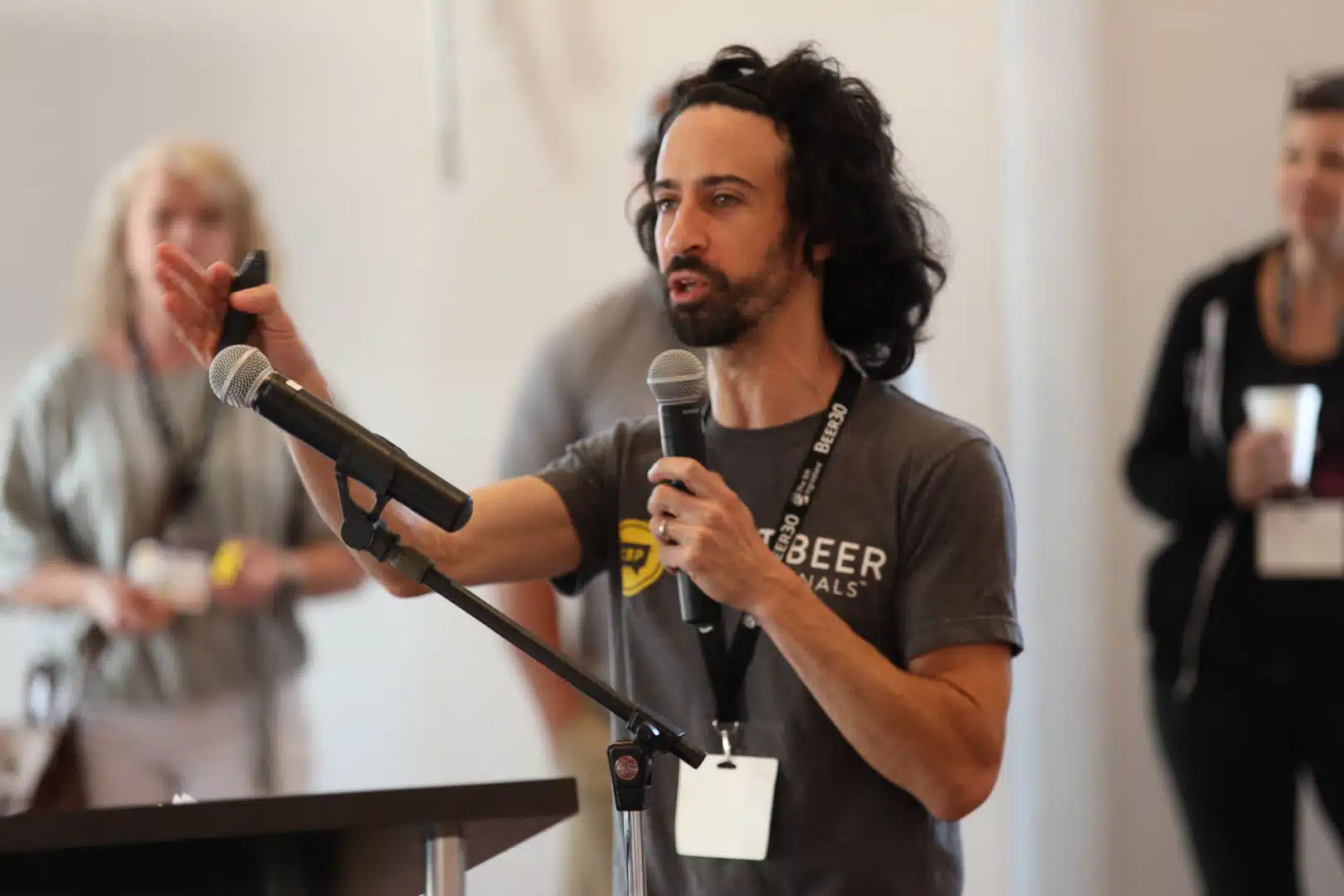
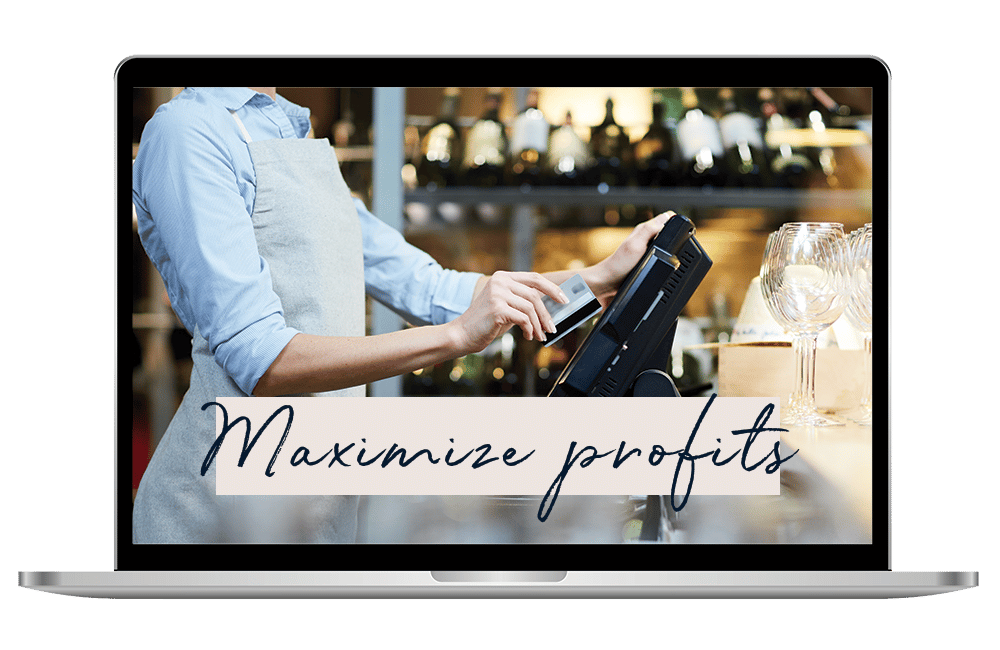
The three costly mistakes you could unknowingly be making?
Find out in this FREE guide and restaurant assessment specifically designed to reveal the unexpected hurdles standing between you and exponential business growth.
Thank You To Our Sponsors

The Employee Retention Tax Credit We will help you determine your eligibility for 2020 & 2021 - Get Started
Did You Know That 7 out of 10 Adults Dine Out To Celebrate Birthdays?
You Can Easily Capture This Lucrative Business!
Want to become a podcast sponsor?
Please get in touch with Roger at roger@restaurantrockstars.com
